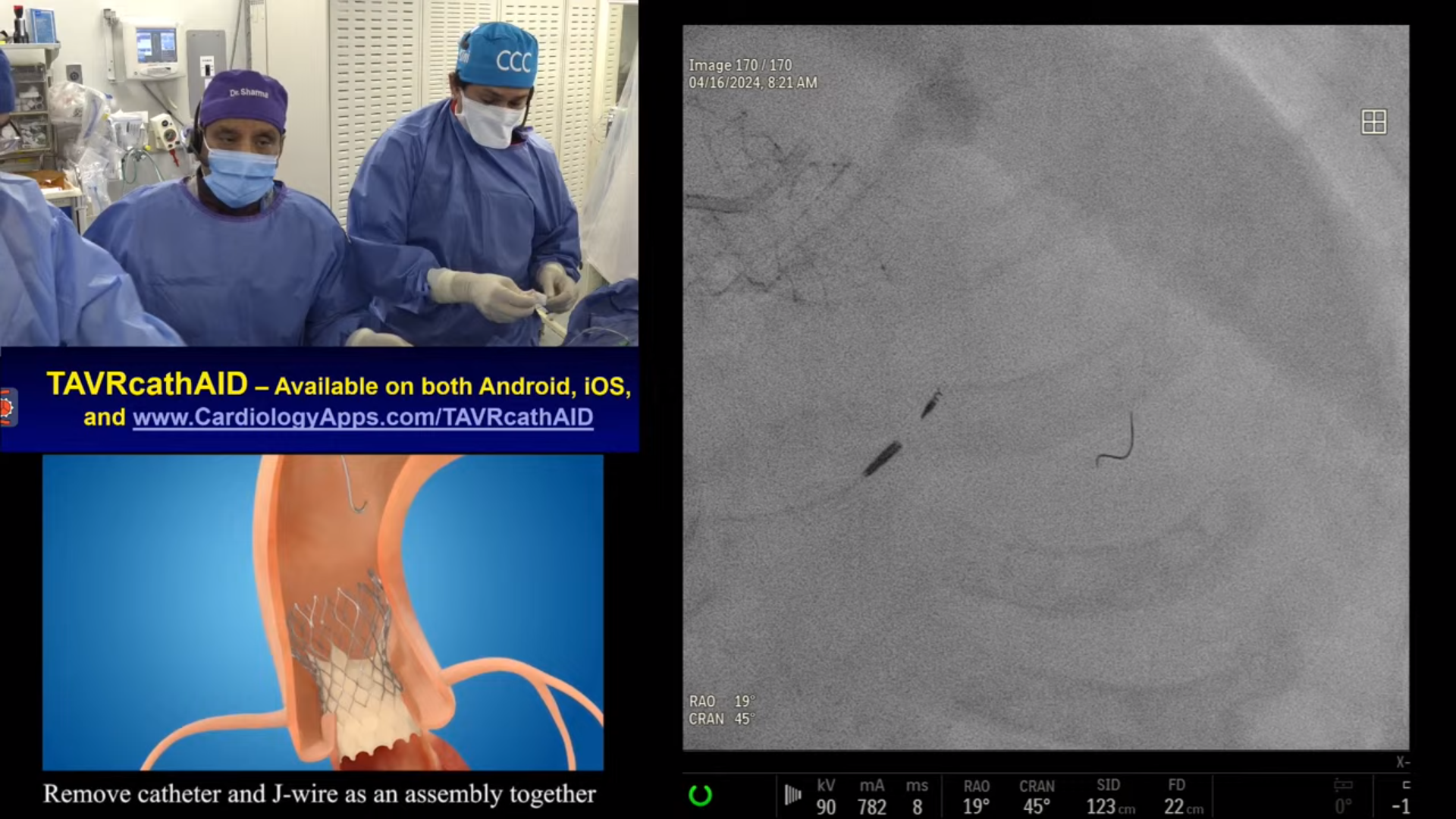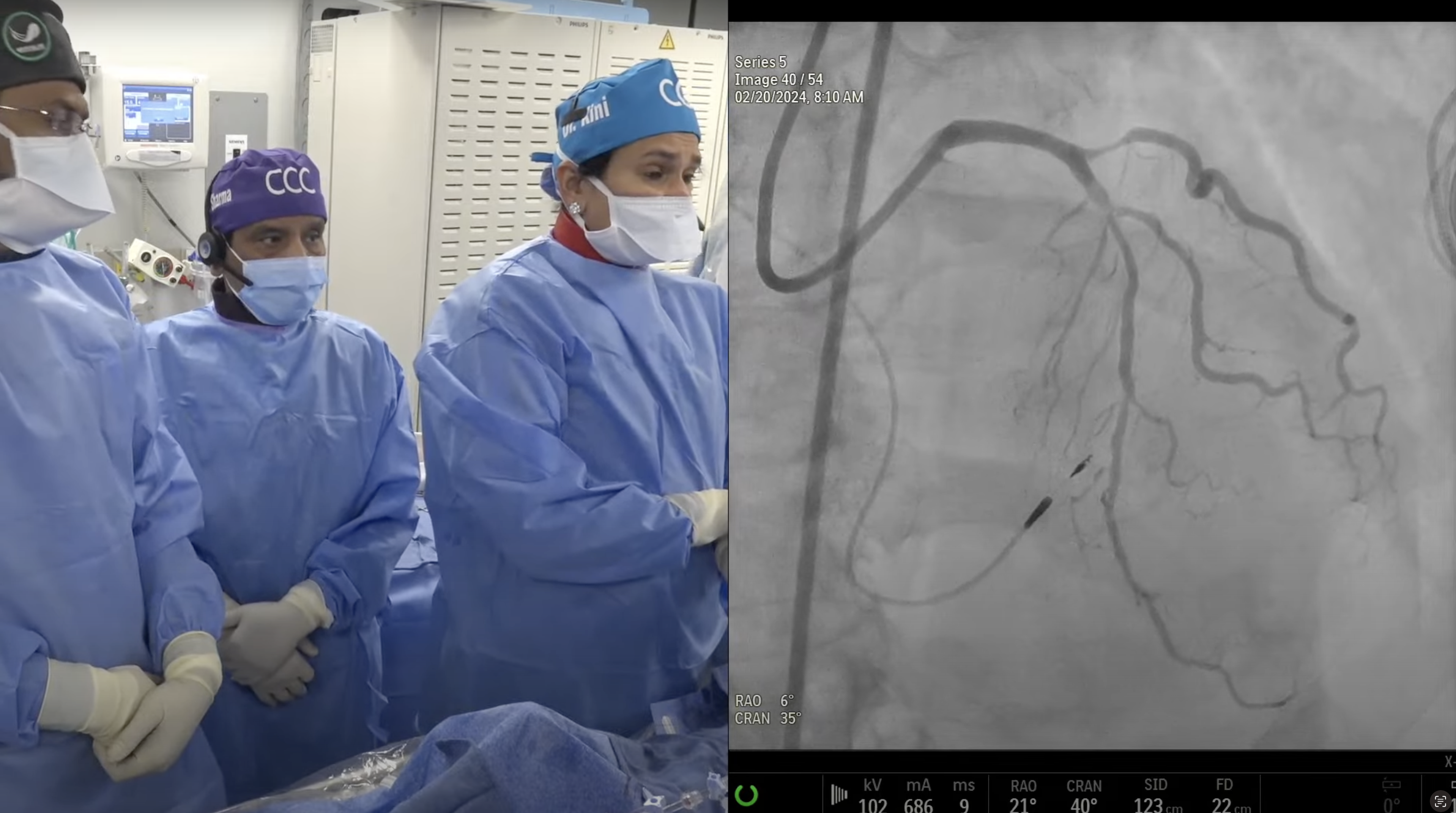50-year-old female with multiple CAD risk factors presented with new onset CCS Class II angina for two months and stress echo revealed moderate inferior ischemia. A Cardiac Cath on October 7, 2019, performed at an outside hospital, revealed 1 V CAD: CTO of prox RCA, which fills via collaterals from left system with non obstructive left system, SYNTAX Score of 9 and LVEF 60%. The RCA CTO is long and calcified with J-CTO Score of 4. Patient is now planned for PCI of RCA CTO using rotational atherectomy and stents via antegrade approach and if failed, then retrograde approach.
Q&A
Q
You have changed your wire escalation strategy? What are your three preferred wires now in the escalation process?
A.
Our CTO wire escalation used to be; Fielder, MiracleBro 6 and Confianza 9-12 (popularly called FMC for teaching purpose) and now is Fielder, Gaia 3 and Confianza 12 (popularly called FGC).
Q
What contributed to the successful CTO today?
A.
Persistence and technical skills, escalation strategy of Confianza guided by contra lateral injections.
Q
Which do you prefer - Guidezilla or Guideliner?
A.
We have observed that Guidezilla performs better then Guideliner in terms of trackability across the angulated vessel segment. Hence Guidezilla has now become our favorite.
Q
Are there newer support catheters that one can consider?
A.
Recently Medtronics has also introduced their support catheter called Telescope; we have used about 10 but did not find it superior to Guidezilla.
Q
What will be your anti platelet strategy for this patient?
A.
Pt was on clopidogrel and was continued as PRU was 188. Yes Ticagrelor could be another choice.
Q
What is your take home message from TWILIGHT?
A.
Clearly adding aspirin on the background of Ticagrelor has no additional antiplatelet effect and can be safely eliminated after 1-3 months of PCI.
Q
Is this the beginning of the end of the remarkable journey of Aspirin for PCI?
A.
Seems that way now after numerous trials recently showing aspirin being a big culprit for bleeding without affecting ischemic events.
Q
As you look at aspirin, were there non platelet events that contribute to its increased bleeding?
A.
Yes GI bleeding is one of them and aspirin is a big culprit. I think GI bleeding by aspirin being an acid, is caused by its direct corrosive effect on gastric mucosa.
Q
Will you begin to translate the results of these new trials into practice?
A.
Yes we have already created a new recommendation in the cath reporting, making 81mg aspirin daily for 1 month, or 3 months in addition to lifelong.
Q
What do you now feel is ideal dose and duration of aspirin for ACS and for stable patient, post DES?
A.
I strongly believe it is One month for Aspirin in ACS as well as stable CAD, as we learnt from Global Leaders trial.





